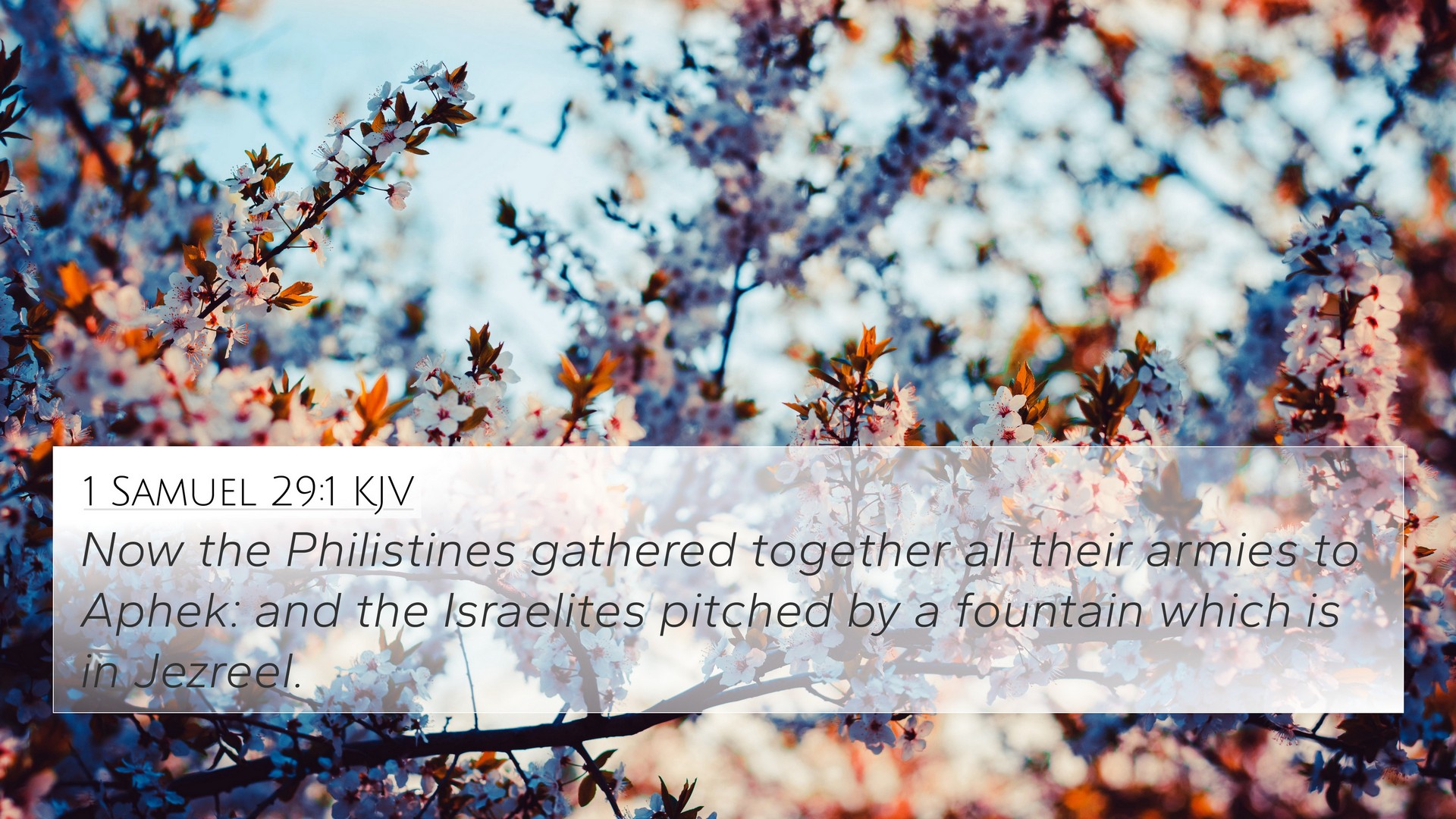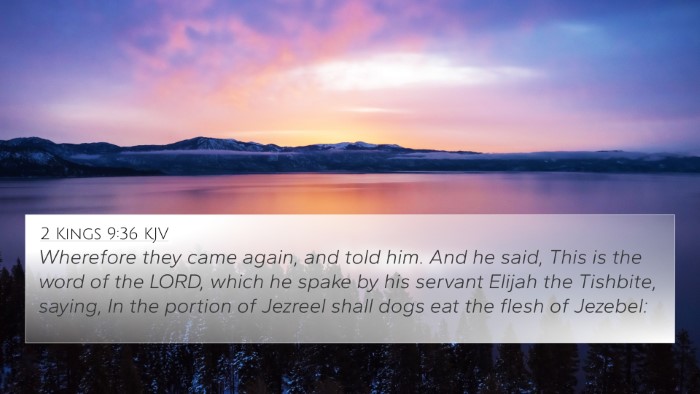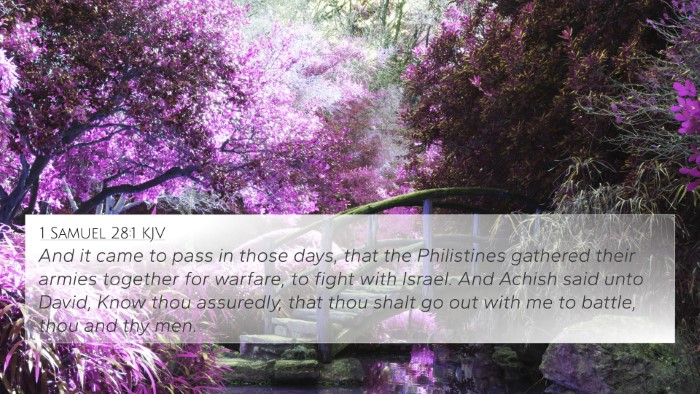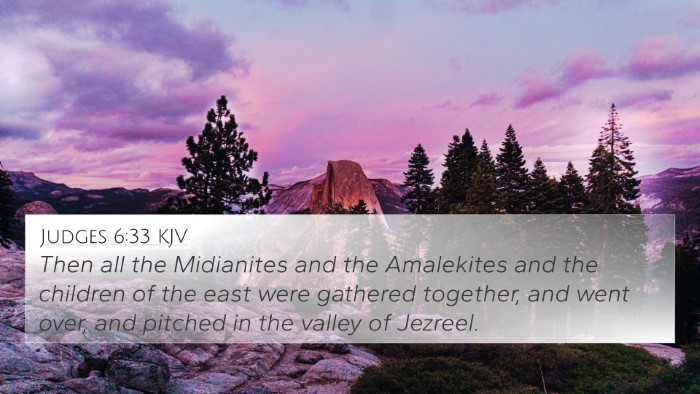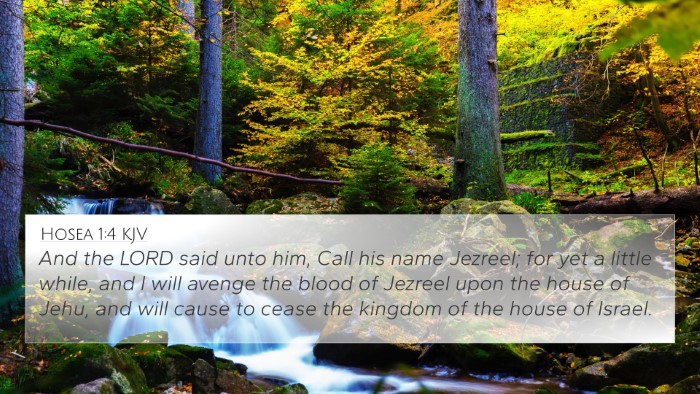Understanding 1 Samuel 29:1
Verse Context: 1 Samuel 29:1 states, “Now the Philistines gathered together all their armies at Aphek. And the Israelites encamped by a fountain which is in Jezreel.” This verse provides critical insight into the events leading up to significant battles between the Philistines and Israelites, emphasizing the tension and conflict present at this time.
Summary of Biblical Meaning
The gathering of the Philistine armies in this verse indicates preparation for war. It represents human plans and alliances juxtaposed against God’s sovereign purpose. The Israelites' positioning by the fountain in Jezreel suggests they were preparing for defense or contemplating their next move, reflecting both physical and spiritual preparedness in the face of impending conflict.
Insights from Public Domain Commentaries
- Matthew Henry: Henry points out that the gathering of the Philistines illustrates their collective strength and the seriousness of their threat to Israel. He emphasizes the importance of vigilance and reliance on God during such times of distress.
- Albert Barnes: Barnes highlights the tactical implications of the location. Jezreel served as a strategic area with resources, indicating that the Israelites were in a position of potential advantage if they chose to defend effectively or seek divine guidance.
- Adam Clarke: Clarke offers a perspective on the significance of the name “Aphek,” which means “strength.” This serves as a reminder that worldly strength, as illustrated by the Philistines, is ultimately powerless against God’s might.
Thematic Connections and Cross-References
This verse can be examined through various inter-Biblical dialogues and thematic connections, aiding in a deeper understanding of the narrative:
- 1 Samuel 17:1: The Valley of Elah where the Philistines gathered to challenge Israel points to the recurring theme of conflict.
- 2 Samuel 5:18: The Philistines' continued assaults against Israel highlight the ongoing struggle.
- Exodus 14:13-14: The theme of trust in God’s deliverance amidst overwhelming odds connects back to Israel's history of reliance on divine intervention in battle.
- Psalms 44:5: Trust in God’s capability to deliver victory over enemies resonates with the themes found in 1 Samuel 29:1.
- 1 Chronicles 10:1: This recounts the subsequent outcomes of the battle, providing a broader understanding of the consequences of conflict.
- Jeremiah 4:19: Expresses the anguish of war, paralleling the fear and despair that might have been felt by the Israelites during this time.
- Romans 8:31: A New Testament application emphasizing that if God is for us, who can be against us, reinforces the need for faith over fear during warfare scenarios.
Cross-Referencing and Comparative Analysis
1 Samuel 29:1 serves as a pivotal verse to understand the historical context of Israel's relationship with neighboring threats and can be used effectively in a cross-reference Bible study to connect to various themes of warfare, divine intervention, and human leadership.
Tools for Bible cross-referencing can aid in further exploration of how the Old Testament anticipates New Testament teachings and how these thematic elements carry through scripture.
Conclusion
As we reflect upon 1 Samuel 29:1, it invites readers to consider the implications of reliance on God versus human strength in times of conflict. This verse not only marks a historical moment but serves as a theological lesson on God’s sovereignty and the importance of faith amidst adversity.
Additional Resources: Engaging in cross-reference Bible studies can enhance one’s understanding of inter-Biblical themes. Utilizing tools like a Bible concordance or a cross-reference Bible will facilitate deeper investigations into how different scriptures relate and support one another throughout the entire biblical narrative.
